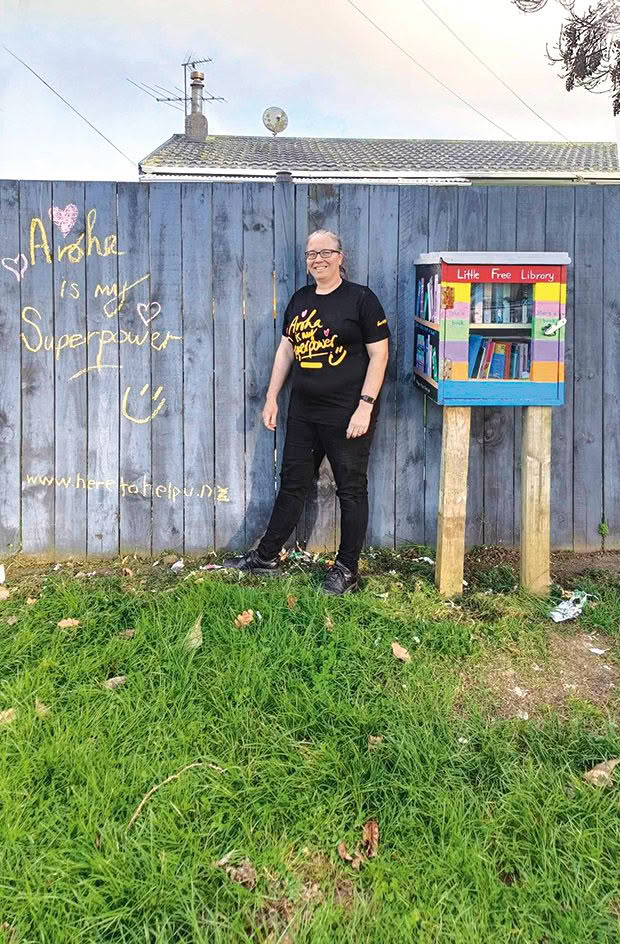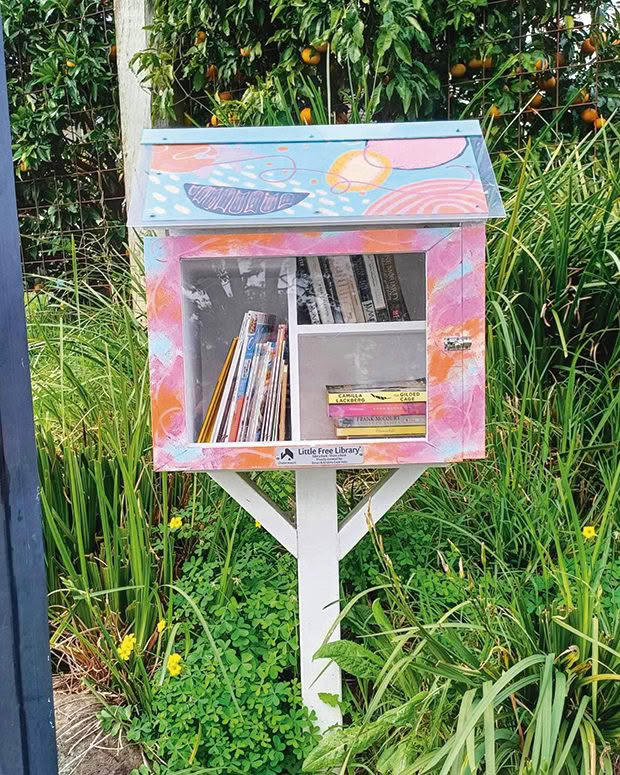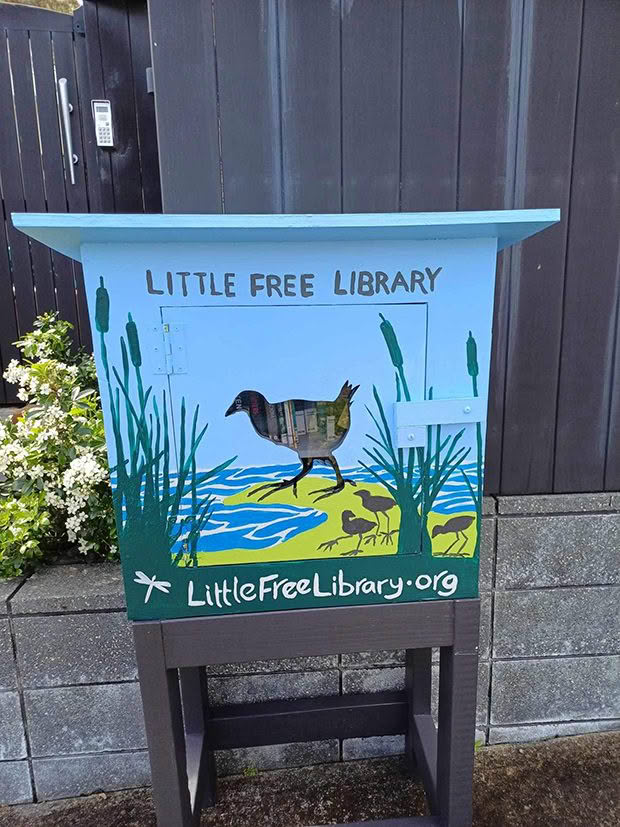The little libraries with a purpose

An Auckland woman finds a creative outlet that brings her joy and delights her community.
Words: Bryony Ammonds-Smith
On street corners, front lawns and community centres across Tāmaki Makaurau, colourful little book-focused community projects are catching the eye of the literary-interested.
And there is a high chance Robyn Hoffman is to be thanked. At her workplace, Real World Living, a Papakura-based disability support service, she oversees the building of neighbourhood book exchanges, wooden boxes distributed into communities filled with books for people to take, read and share.
Robyn, whose job is to find job opportunities for school-leavers, decided to start making little libraries in 2022. After noticing how easily unused books were discarded, she sourced the skeleton of a little library and asked groups if they would be interested in having one.
“I saw an opportunity to have a presence and to give back to the community, as well as showing others that people with a disability can offer multiple things.”
Each library, made from donated pallets or plywood, involves a person with a disability. According to Robyn, “every door features a unique design that reflects an individual’s story”.
The little libraries — a box and a selection of preloved books — usually arrive at their destination painted grey, a deliberate decision by Robyn and her team so that their new community can decorate them.
Fifty boxes have been made and delivered across Auckland, “as far south as Waiuku and as far north as Stanmore Bay”.

But mere construction isn’t enough for Robyn. After putting out a call on social media, she has collated a directory of little libraries across the regions. As it turns out, there are currently more than 250. She spends weekends hunting down each one, collecting and documenting exact locations in her online directory. That way, no one gets led astray in their hunt for their next read.
Her assistant is her daughter, Freesia (26), who has earned the nickname, The Book Fairy. Freesia, who has autism and an intellectual disability, accompanies her mum and finds purpose in preparing the libraries for visitors. “Her role is tidying the libraries, putting the books away and photographing them. It’s important for her to be seen and valued as a contributing member of society,” says Robyn.
This isn’t the first creative project into which community-minded Robyn has dug her heels. During the pandemic, she started drawing chalk illustrations on her fence. It started as a passing hobby, something to please lockdown walkers. In fact, Robyn had never really drawn before. But in the evenings, once everyone had returned to their “bubbles”, she would sneak out and create the next work of fence art.
Robyn eventually shared photos on local disability and community groups, sparking the interest of others, and became something of a travelling artist. “I started doing drawings in other people’s driveways,” she says, recalling one Daisy Duck enthusiast being surprised when an entire cul-de-sac was decorated in her favourite cartoon character.

It was a solo feat that took over an hour and a half, again done under the cloak of night. Robyn, who was separated from Freesia during lockdown, knew that these surprise drawings were the least she could do to create a touch of magic. “When you have a disabled child, you quite often feel alone. We were even more isolated during the pandemic, so it was a lovely surprise for me to give to others.”
Robyn loves the role she is playing in her community. She knows that people engage with her creations, and the list of library requests is growing fast.
She only hopes that the coming years will bring more little libraries. She wants to see them nationwide — particularly in hospitals, kindergartens and schools. “Bringing joy to people is really amazing.”
WHAT ARE LITTLE LIBRARIES?
According to the American non-profit organisation Little Free Library, take-a-book, share-a-book exchanges come in many shapes and sizes, but the most common is a small wooden box. Anyone may take a book or bring a book to share.
HOW TO HELP YOUR LITTLE LIBRARIES
Robyn’s little libraries exist thanks to donations. While the team has lots of adult books, there’s a specific need for more children’s books. Construction resources such as paint and hinges are crucial; plywood is in high demand but tends to be the most challenging to secure. “Making a pallet library takes two to three weeks, whereas a treated plywood structure takes two to three days.” Contact Robyn via Facebook.
Love this story? Subscribe now!
 This article first appeared in NZ Life & Leisure Magazine.
This article first appeared in NZ Life & Leisure Magazine.
